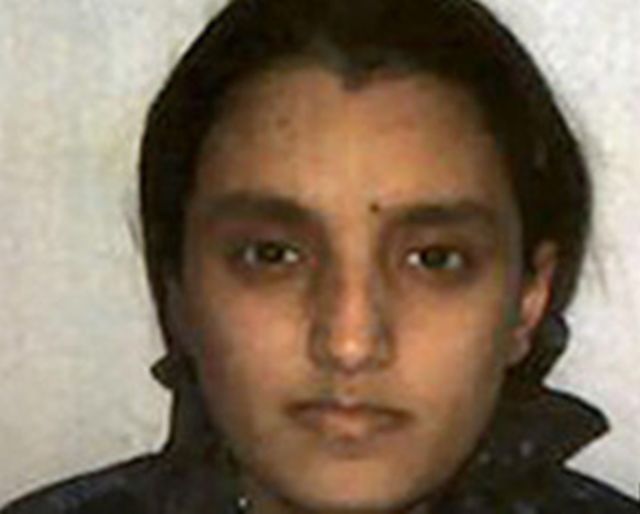
Trial of Would-Be Assassin Illustrates al-Awlaki’s Influence on the British Jihad
Publication: Terrorism Monitor Volume: 8 Issue: 44
By:

The conclusion in early November of the trial against 21-year-old Roshonara Choudhry, convicted of attempting to murder British member of Parliament Stephen Timms, marked the end of a case that dealt with the importation of the concept of the “lone jihadi” as espoused by American-Yemeni jihad ideologue Anwar al-Awlaki. According to Peter Clarke, the former head of London’s Counter Terrorism Command, Choudhry’s actions highlighted the fact that “we are nowhere near getting the counter-narrative [to jihad] through,” and were described by British police as the first instance in which an al-Qaeda inspired Briton attempted an assassination on British soil (Guardian, November 3). [1]
The strange case of Roshonara Choudhry first came to the public’s attention on May 14, 2010, when she walked into MP Stephen Timms’ constituency office for an appointment she had made. Specifying that she had to see the MP rather than an assistant, when she arrived for her appointment Choudhry seemed “anxious” to the security guard working in the office (Telegraph, November 2).
After a short wait, Mr. Timms came out of his office to greet the young woman, who approached him as though to shake his hand. All dressed in black and wearing traditional Muslim garb, Timms “was a little puzzled because a Muslim woman dressed in that way wouldn’t normally be willing to shake a man’s hand, still less take the initiative to do so” (Telegraph, November 2). In fact, as described by Choudhry, the outstretched hand was a ruse: “I walked towards him with my left hand out as if I wanted to shake his hand. Then I pulled the knife out of my bag and I hit him in the stomach with it. I put it in the top part of his stomach like when you punch someone” (Telegraph, November 2).
The security guard and one of Timms’ assistants quickly restrained the young girl, and police and ambulance services were summoned. In an interview conducted hours after her arrest, Choudhry was open in describing her desire to die in the course of her action: “I wanted to be a martyr,” since “that’s the best way to die… It’s an Islamic teaching.” [2] Prior to her attack, Choudhry decided to clear all of her debts, something typical of aspirant Islamist martyrs (Guardian, November 2). When asked why she targeted Timms in her attack, Choudhry responded, “I thought that it’s not right that he voted for the declaration of war in Iraq,” adding that the ideas for this path of vengeance came from “listening to lectures by Anwar al-Awlaki” she found on the internet.
Choudhry appears to have been something of a model student, working up from humble beginnings in East London as one of five children of a Bangladeshi tailor. At the time of her attack, the family was largely living off of benefits and monies the children were able to raise through work. Her background did not prevent Choudhry from earning a place at the prestigious King’s College, London, where she studied English and Communications. In her spare time, she volunteered at an Islamic school and was seen as a prize student on course to achieve a first-class degree (the highest level in the British university system) (Guardian, November 2).
Sometime during her third and final year, Choudhry underwent a transformation and decided to drop out of her course: “Because King’s College is involved in things where they work against Muslims….they gave an award to [Israeli politician] Shimon Peres and they also have a department for tackling radicalization….So I just didn’t wanna go there anymore…cos it would be against my religion.” By her own account, the path that led her to attacking Timms was set in motion prior to her decision to drop out. She discovered Anwar al-Awlaki’s speeches sometime in November 2009, claiming that she found them through her “own research.” From his lectures she got the idea that “as Muslims we’re all brothers and sisters and we should all look out for each other and we shouldn’t sit back and do nothing while others suffer.” She was particularly taken by al-Awlaki’s speeches as “he explains things really comprehensively and in an interesting way so I thought I could learn a lot from him and I was also surprised at how little I knew about my religion so that motivated me to learn more.”
According to Choudhry, it was a video featuring the late Shaykh Abdullah Azzam (1941-1989) and his instruction that it is “obligatory on everyone [i.e. every Muslim] to defend [Muslim] land” that pushed her into the decision to act sometime in April 2010. At this point she decided to seek revenge on a member of the British parliament who had supported the invasion of Iraq using public information websites and a radical website called RevolutionMuslim.com that provided a list of MPs who had voted in favor of the Iraq invasion. Timms was specifically chosen because according to websites she had found, “he very strongly agreed with the invasion of Iraq.” Another factor was Choudhry’s own experience of meeting the MP as part of a school trip sometime in 2006 or 2007.
What is striking about the choice of Timms is that during this first meeting with the MP, Choudhry recalled a fellow student questioning Timms over his support of the war and of feeling that “she [the student] should be quiet and that she’s embarrassing herself.” Four years later, Choudhry had been radicalized to the point that she was willing to murder the same MP.
In the wake of Choudhry’s arrest, there was a spike of attention in the British media about the radicalizing impact of websites. In a speech in Washington, DC, Security Minister Lady Pauline Neville-Jones raised the issue of YouTube hosting videos by radical preachers and other US websites that hosted material she described as “inciting cold blooded murder” (Guardian, November 3). On November 17, British police arrested 23-year-old Bilal Zaheer Ahmand from Dunstall, Wolverhampton for soliciting murder and possessing information likely to be useful to terrorists. The young man was allegedly linked to RevolutionMuslim.com, which published the list of MPs who had voted for the Iraq war and a post which praised Choudhry as a “heroine” (BBC, November 17; Telegraph, November 17). Whether Ahmand will be successfully convicted is still in question. A trial in July against Mohammed Gul, a 22-year-old London student who was allegedly uploading radical videos to a website and who was in contact with extremists abroad, concluded with a hung jury and will go to retrial next year (Romford Recorder, July 27, 2010; Daily Mail, February 24, 2009). For Choudhry, however, the future is clear; on November 3 she was sentenced to life imprisonment with a minimum of 15 years. She is currently being held as a “Category A” prisoner, meaning she is subject to intrusive strip-search regimes every time someone visits, something she finds demeaning and against her faith and which has, as a result, kept her in isolation since her incarceration (Guardian, November 2).
Notes:
1. Peter Clarke, interview with author, November 2010.
2. Unless otherwise indicated, Choudhry’s quotes are taken from her police interview, published by the Guardian, November 3, 2010:https://www.guardian.co.uk/uk/2010/nov/03/roshonara-choudhry-police-interview.





